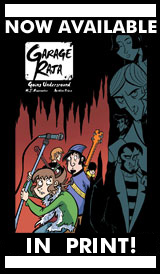I’m Chinatown
Jets to Brazil’s Orange Rhyming Dictionary is the first — and possibly only — great album on the theme of “exhaustion.” Maybe the band didn’t set out to make an album explicitly about fatigue, there are hints that suggest an attack on media saturation and surveillance,  but by the time they penned “Chinatown,” there was no escaping it. The album’s centerpiece, it not only ends with a deadpan reminder of cinema’s most chilling ending (“I’m Chinatown,” the narrator discovers, aligning himself with the apathy that Jack Nicholson learns by movie’s end is the only appropriate course of action) but  explains the theme of the album with its lyrics: “some make exhaustion a mode of expression/and that’s their way.”
Similarly, every character on Orange Rhyming Dictionary is suffering from and defining themselves by this kind of lassitude: witness the subjects of “Crown of the Valley,” a cadre of old moneyed aristocrats glutted on their wealth and their history, too tired to crawl out of the sun that is, as singer Blake Schwarzenbach observes, “melting (them) like ice-cream” or the paranoid basket-case at the heart of “Morning New Disease,” his thoughts as staccato and choppy as the musical arrangements that underlie his plight. There’s a hint of comfortable relaxation in “Sea Anemone” but it’s only illusory: the lyrics reveal a man so drained by a recent break-up that he’s considering hanging himself from his shower rod. When the mellow guitar stops and the piano slowly, finally, fades out, it’s as if we’re watching a life swirl down a drain like so much water, the choice of shower as a site for suicide far from accidental. Drugs and love offer no solace; they’ll either drive you mad (“you’ll soon go screaming/like a bargain basement lunatic…”) or bring you to suicide.
That the album closes out on “Sweet Avenue“, a love song as optimistic and gentle as any in Jets’ catalogue, seems perverse. It’s a fine prefiguring of things to come and not a bad coda, since it provides open-aired relief from the claustrophobic environments of “I Typed for Miles,” but it almost feels as if the album should have ended with that earlier song with its smoky guitars, anxiously tapping drums, slimy production and perfectly constructed images of a personal hell.
There’s a building tension in the song that seems to encompass every song before it, a paranoia that keeps threatening to break through and then simply doesn’t. And then does. When Blake again moans the words of the chorus one last time, disturbed to acknowledge that “they’re playing love songs…” it seems like a simple repetition of the chorus and an easy way to close out the song. But there’s a change in the lyrics, this time, one the singer notices with horror. It’s no longer the radio in general that’s peppered with romantic ballads; it’s “her” radio in particular that’s ringing with these reminders.
With that revelation Blake’s moaning turns to a screaming. “I don’t get those songs on mine!” he wails as the normally measured guitars blast apart and the reins come off of the drums. “You keep fucking up my life!” he laments again and again and again but with each yell there’s less urgency, the strained plea of the voice entirely at odds with the fury of the instrumentation. As the last note on the guitar give out it’s hard not to picture the singer slumped down over his typewriter, resigned to his eternal mediocrity as a lover and an artist but too beaten to do a thing about it. For him, as for everyone else on this album, exhaustion truly has become a mode of expression, quite possibly the only mode of expression still possible.







